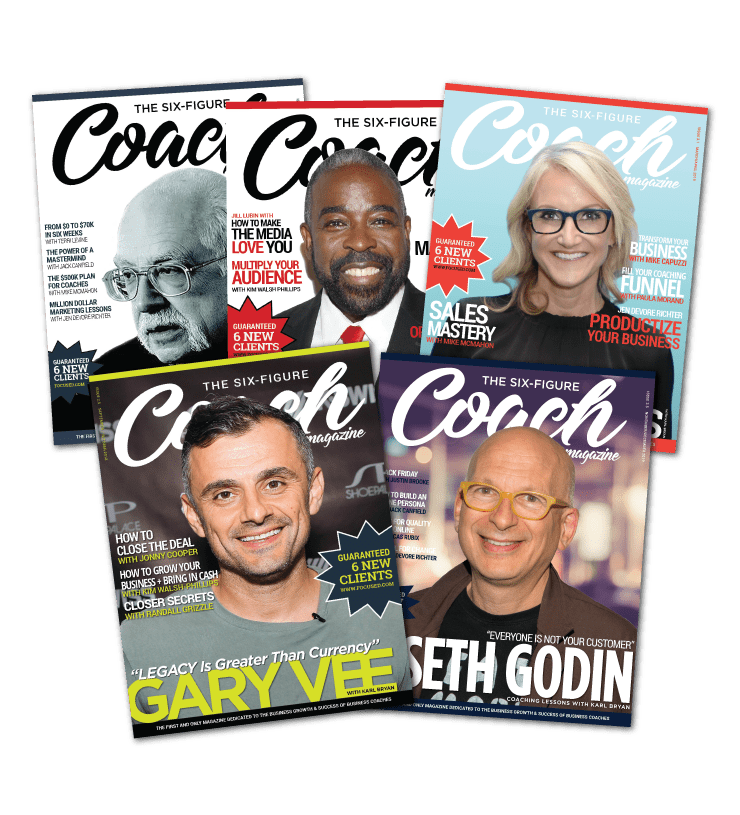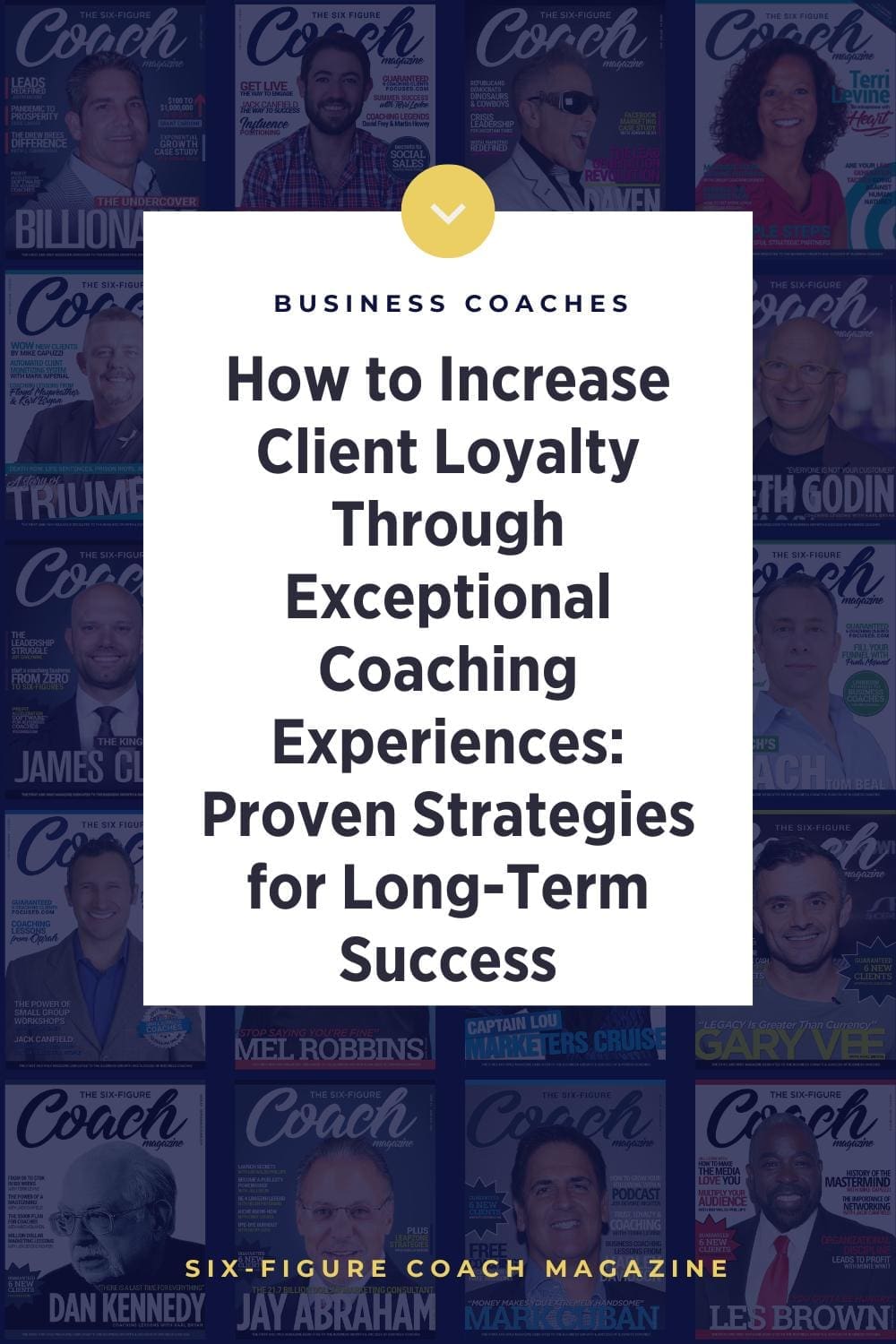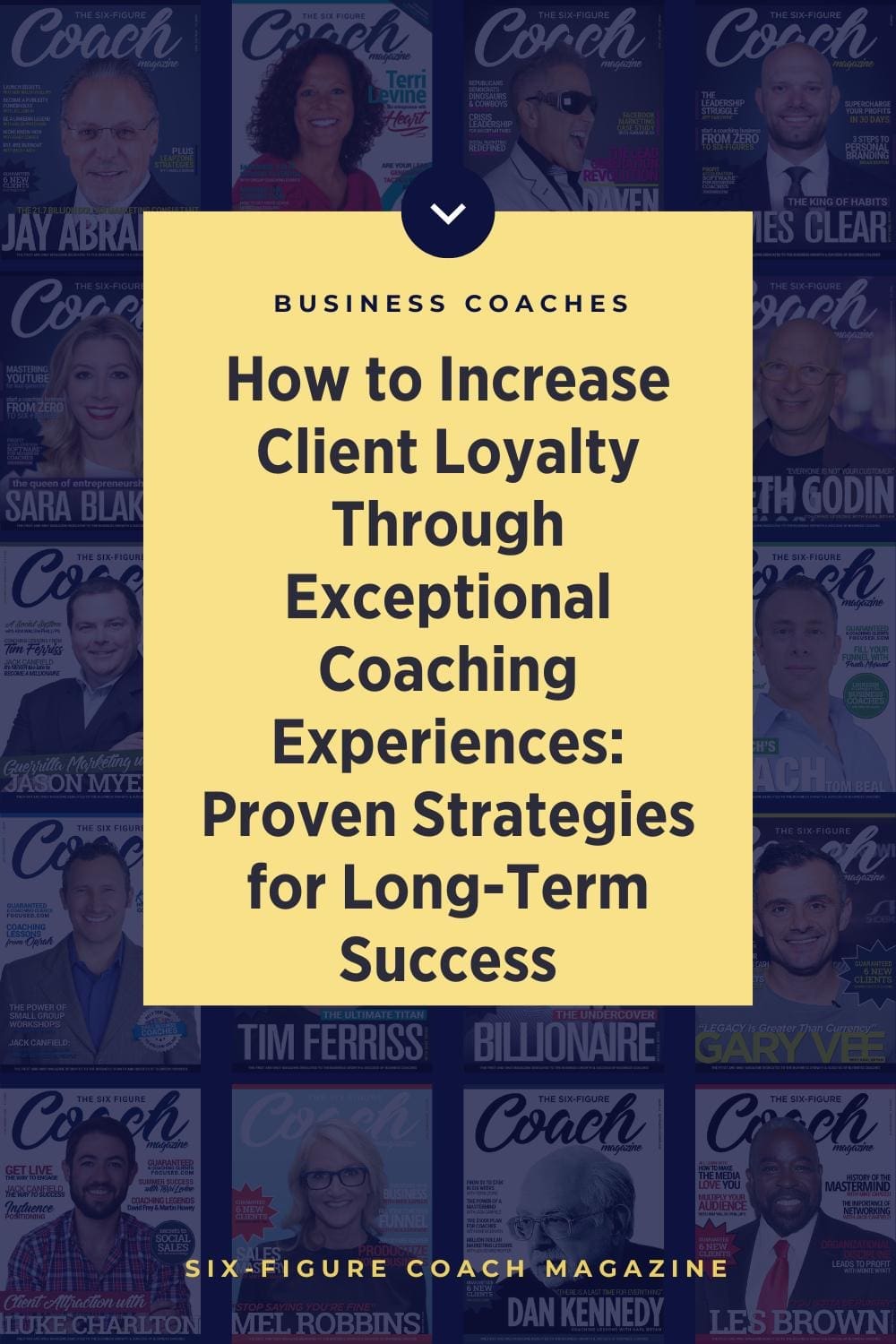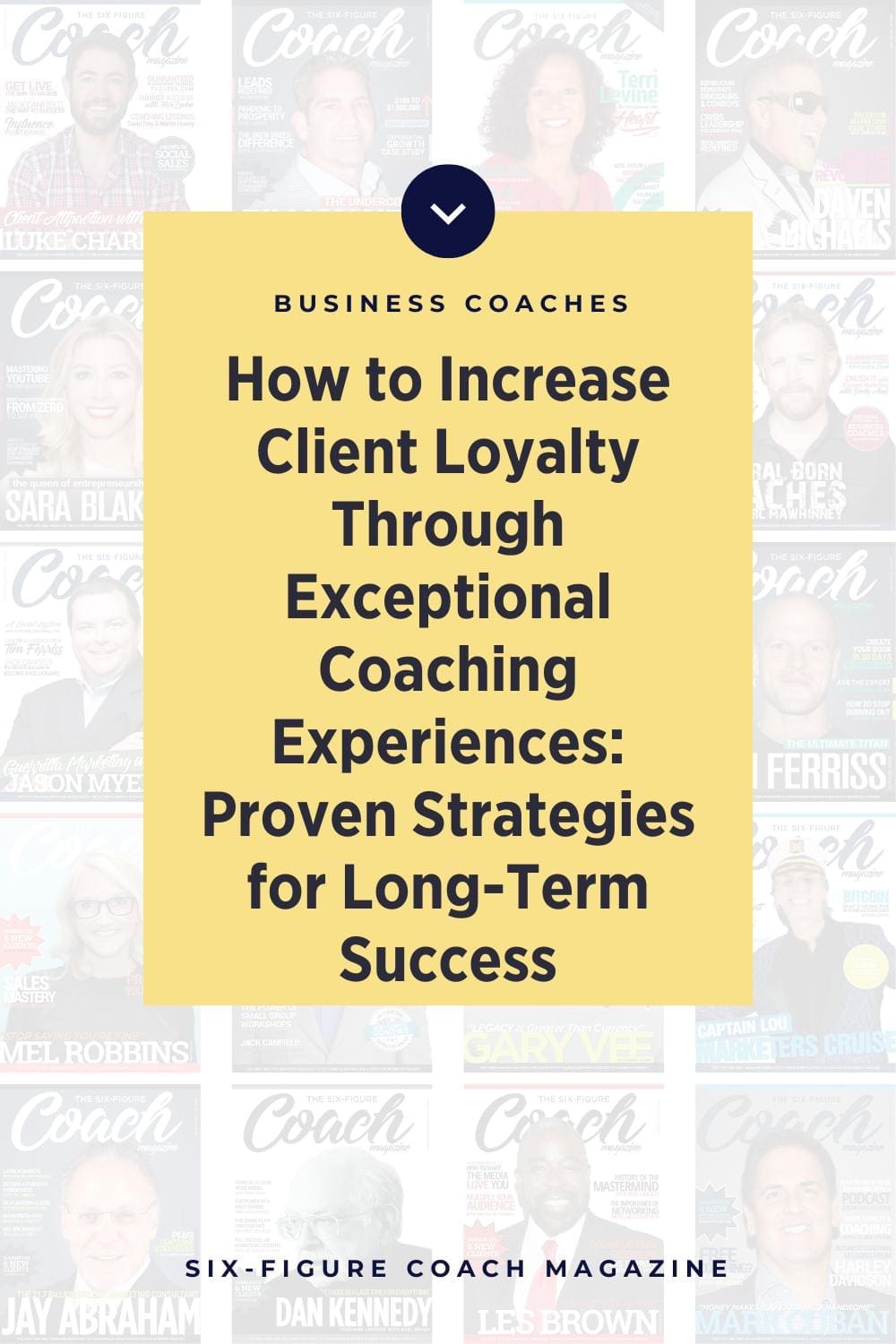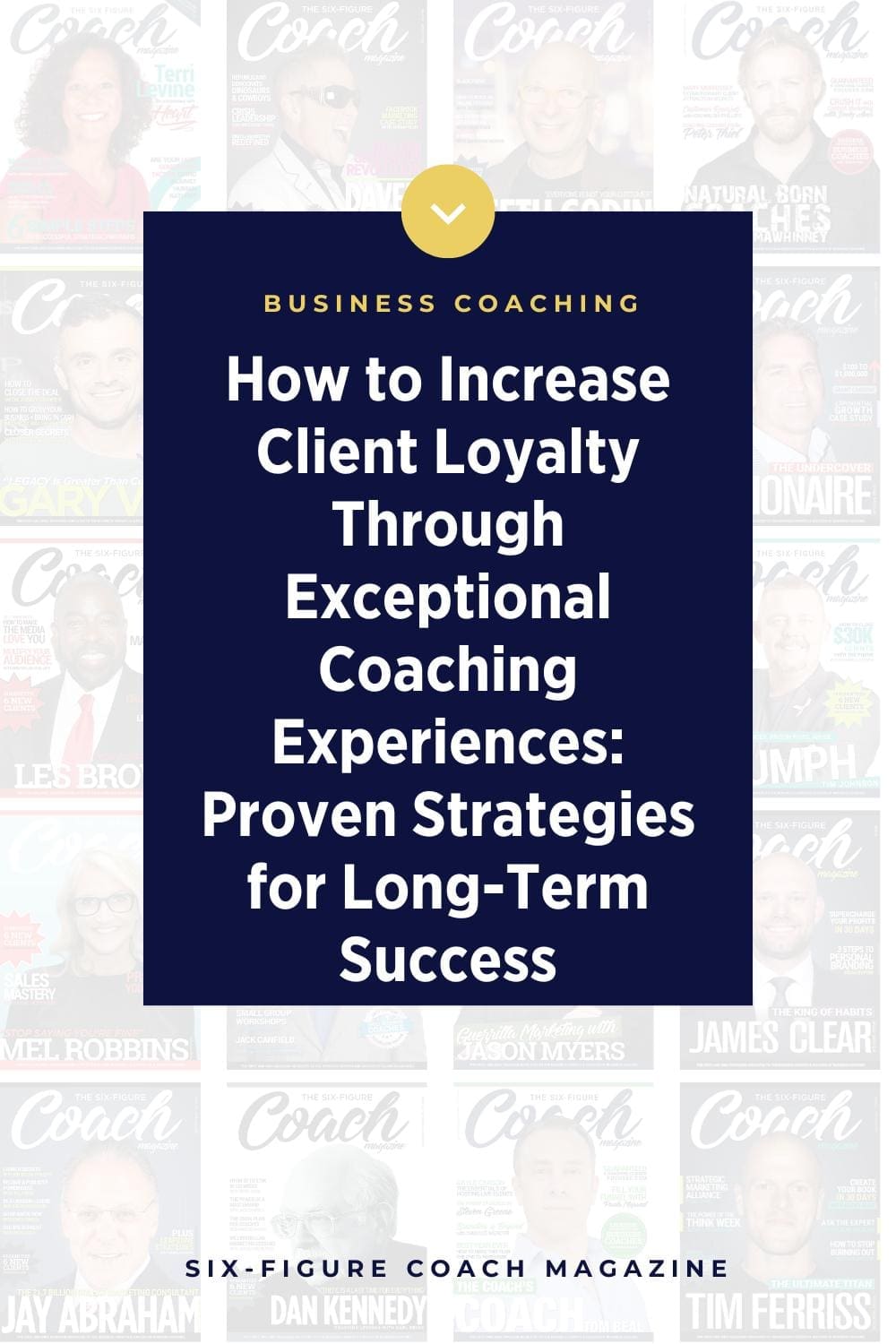How to Increase Client Loyalty Through Exceptional Coaching Experiences: Proven Strategies for Long-Term Success
Client loyalty is the cornerstone of a thriving coaching business. It drives repeat engagements, referrals, and long-term success. Building this loyalty requires more than just delivering results; it demands creating exceptional coaching experiences that leave a lasting impression.
Coaches who prioritize personalized attention, clear communication, and consistent value-add for their clients are more likely to foster strong, enduring relationships. This approach not only enhances customer satisfaction but also differentiates coaches in a competitive market.
Exceptional customer service in coaching goes beyond meeting expectations. It involves anticipating client needs, providing tailored solutions, and demonstrating genuine care for their progress. By focusing on these elements, coaches can create a client experience that builds trust, encourages loyalty, and ultimately leads to mutual success.
Understanding the Psychology of Client Loyalty
Client loyalty stems from positive experiences and emotional connections. Coaches who grasp the psychological factors influencing loyalty can strengthen their client relationships and build a devoted following.
Building Trust with Clients
Trust forms the foundation of client loyalty. Coaches must demonstrate reliability, competence, and integrity in every interaction. Consistent follow-through on commitments builds credibility over time.
Transparency in communication fosters trust. Coaches should clearly explain their methods, set realistic expectations, and provide honest feedback. This openness helps clients feel secure in the coaching relationship.
Active listening plays a crucial role in trust-building. When coaches attentively hear clients’ concerns and goals, it shows respect and genuine interest. This attentiveness creates a safe space for clients to be vulnerable and open to growth.
Fostering Emotional Connections for Brand Loyalty
Emotional connections drive long-term brand loyalty. Coaches can cultivate these bonds by demonstrating empathy and understanding. Recognizing clients’ struggles and celebrating their successes creates a sense of shared experience.
Personalization enhances emotional connections. Tailoring coaching approaches to individual needs shows clients they are valued as unique individuals. This customization leads to deeper engagement and satisfaction.
Creating memorable experiences strengthens emotional ties. Coaches can incorporate special touches, such as personalized check-ins or milestone celebrations, to make clients feel appreciated. These moments of delight contribute to positive associations with the coaching brand.
Delivering Exceptional Coaching Experiences
Exceptional coaching experiences hinge on three key elements: empathy, consistency, and adaptability. These factors work together to create a supportive and effective environment for clients.
The Role of Empathy in Coaching
Empathy forms the foundation of a strong coach-client relationship. Coaches who demonstrate genuine understanding and concern for their clients’ challenges build trust quickly.
Active listening is crucial. Coaches should focus on verbal and non-verbal cues to grasp the full picture of a client’s situation.
Validating client emotions helps create a safe space for growth. Coaches can acknowledge feelings without judgment, fostering openness and vulnerability.
Empathetic coaches ask thoughtful questions that encourage self-reflection. This approach helps clients uncover insights and solutions on their own.
Ensuring Consistency in Quality
Consistent quality in coaching sessions maintains client confidence and progress. Establishing clear coaching protocols and standards is essential.
Regular self-assessment and peer reviews help coaches maintain high-quality service. This practice identifies areas for improvement and reinforces best practices.
Coaches should implement a structured approach to session planning and follow-up. This ensures each interaction adds value and builds on previous work.
Continuous professional development keeps coaches up-to-date with the latest techniques and research. This commitment to growth directly benefits clients.
Adapting to Client Preferences and Needs
Flexibility in coaching style and methods is key to meeting diverse client needs. Coaches should assess and adjust their approach based on individual preferences.
Some clients may prefer direct guidance, while others respond better to a more collaborative style. Coaches must be skilled in various techniques to accommodate these differences.
Tailoring communication methods to each client enhances engagement. This might involve varying between in-person, video, or phone sessions based on client comfort and availability.
Regular check-ins allow coaches to gauge client satisfaction and make necessary adjustments. This proactive approach demonstrates a commitment to client success.
Effective Communication Strategies
Communication forms the backbone of successful coaching relationships. Mastering key strategies enhances client loyalty and fosters exceptional experiences.
Mastering Active Listening and Feedback
Active listening involves fully concentrating on clients’ words and non-verbal cues. Coaches should maintain eye contact, nod to show engagement, and avoid interruptions. Paraphrasing clients’ statements confirms understanding and demonstrates attentiveness.
Providing constructive feedback is equally vital. Coaches should use specific, actionable language when offering insights. For example: “Your presentation skills have improved significantly. Your voice projection was clear and confident.”
Timing feedback appropriately ensures maximum impact. Immediate feedback works best for behavior-based observations, while reflection time may benefit more complex issues.
Articulating a Clear Value Proposition
A well-defined value proposition communicates the unique benefits clients receive from coaching services. It should address specific pain points and outline tangible outcomes.
Coaches can create a compelling value proposition by:
- Identifying target client needs
- Highlighting unique coaching methodologies
- Showcasing past client successes
- Quantifying potential results where possible
Example: “Our executive coaching program has helped 85% of clients achieve promotion within 18 months, using tailored leadership development strategies.”
Open Communication for Client Engagement
Establishing open communication channels promotes client engagement and trust. Coaches should offer multiple contact methods, such as email, phone, and messaging apps, to accommodate client preferences.
Regular check-ins between sessions maintain momentum and address emerging concerns. A brief weekly email or text can suffice: “How’s your progress on last week’s action items? Any challenges I can help with?”
Transparency about the coaching process, including methodologies and expected outcomes, builds credibility. Coaches should clearly explain their approach and invite questions to ensure client understanding and buy-in.
Leveraging Customer Service for Client Retention
Exceptional customer service plays a pivotal role in retaining clients and fostering long-term loyalty. By focusing on support strategies, competitive advantages, and feedback-driven improvements, coaches can significantly enhance client satisfaction and retention rates.
Implementing Omnichannel Support
Omnichannel support provides clients with seamless assistance across multiple platforms. Coaches should offer support through various channels such as phone, email, chat, and social media. This approach ensures clients can reach out using their preferred method of communication.
A unified customer service system helps track client interactions across all channels. This integration allows coaches to maintain context and provide personalized support regardless of the contact method.
Implementing self-service options, like FAQs and knowledge bases, can complement direct support channels. These resources empower clients to find quick answers to common questions, enhancing their overall experience.
Customer Service as a Competitive Advantage
High-quality customer service sets coaching businesses apart from competitors. Responsive and empathetic support builds trust and strengthens client relationships.
Coaches should train their support team to understand the nuances of coaching services. Knowledgeable staff can provide valuable insights and solutions, increasing client confidence.
Proactive support, such as check-ins and follow-ups, demonstrates commitment to client success. This approach helps identify potential issues before they escalate and shows clients their progress is valued.
Personalization in customer service creates memorable experiences. Tailoring communication and solutions to individual client needs fosters a sense of importance and loyalty.
Continuous Improvement Based on Customer Feedback
Regular collection and analysis of customer feedback drive service improvements. Coaches should implement surveys, reviews, and direct outreach to gather client insights.
• Net Promoter Score (NPS) • Customer Satisfaction (CSAT) surveys • Post-interaction feedback
Acting on feedback demonstrates responsiveness and commitment to client satisfaction. Coaches should prioritize addressing common issues and implementing suggested improvements.
Data analysis helps identify trends and areas for enhancement. By tracking key metrics, coaches can make informed decisions to refine their customer service strategies.
Engaging clients in the improvement process through focus groups or beta testing new features can foster a sense of ownership and loyalty.
Cultivating Long-Term Success
Exceptional coaching experiences foster client loyalty and drive sustainable business growth. Tailored approaches and memorable interactions create a foundation for enduring success.
Creating Memorable Experiences for Repeat Business
Exceptional coaches design unique, impactful sessions that resonate with clients long after they end. They incorporate innovative techniques, challenging exercises, and personalized feedback to make each interaction stand out.
Coaches can:
- Use storytelling to illustrate key points
- Implement interactive tools and technology
- Create custom workbooks or resources
- Offer unexpected “wow” moments during sessions
Following up with thoughtful check-ins and providing additional resources between appointments demonstrates ongoing commitment. This level of care encourages clients to return and recommend the coach’s services to others.
Building Lasting Relationships through Personalization
Successful coaches invest time in understanding each client’s unique goals, challenges, and preferences. They tailor their communication style, coaching methods, and recommendations to align with individual needs.
Key personalization strategies include:
- Conducting thorough intake assessments
- Actively listening and asking insightful questions
- Adapting coaching plans based on progress and feedback
- Remembering personal details and referencing them in future sessions
By demonstrating genuine interest and adapting their approach, coaches build trust and rapport. This personalized touch fosters strong, lasting relationships that withstand the test of time.
Strategies for Business Growth and Market Share
Coaches can leverage client loyalty to expand their business and increase market share. Satisfied clients become brand ambassadors, promoting the coach’s services through word-of-mouth referrals.
Effective growth strategies include:
- Implementing referral programs with incentives
- Offering tiered service packages for long-term clients
- Expanding service offerings based on client feedback
- Collaborating with complementary professionals
Coaches can also leverage social proof by showcasing client success stories and testimonials. This builds credibility and attracts new clients, contributing to sustained business growth and increased market presence.
Innovation in Coaching for Enhanced Customer Experiences
Innovative coaching approaches and personalized strategies can significantly boost client loyalty. By leveraging new technologies and tailoring experiences, coaches can create more impactful and engaging sessions for their clients.
Integrating Innovative Solutions
Virtual reality (VR) simulations offer immersive coaching experiences. Clients can practice real-world scenarios in safe, controlled environments. This technology enhances skill development and confidence building.
AI-powered coaching assistants provide 24/7 support between sessions. These tools offer personalized reminders, track progress, and answer basic questions. This continuous engagement keeps clients motivated and on track.
Mobile apps enable seamless communication and goal tracking. Coaches can send instant feedback, while clients log their progress in real-time. This connectivity strengthens the coach-client relationship and improves accountability.
Segmentation and Personalized Coaching Approaches
Data analytics help identify client segments with similar needs. Coaches can tailor their approaches to address specific challenges faced by each group. This targeted strategy leads to more relevant and effective coaching sessions.
Personality assessments guide coaches in adapting their communication styles. By matching their approach to each client’s preferences, coaches create stronger connections and improve information retention.
Customized learning paths cater to individual goals and learning speeds. Clients progress at their own pace, focusing on areas most relevant to their objectives. This flexibility enhances engagement and satisfaction with the coaching process.
Measuring and Boosting Client Satisfaction
Client satisfaction is crucial for long-term success in coaching. Regular assessment and proactive strategies can significantly enhance loyalty and retention.
Utilization of Surveys and Customer Data
Surveys provide valuable insights into client experiences. Short, frequent questionnaires yield timely feedback on coaching sessions. Include questions about session quality, goal progress, and overall satisfaction.
Analyze customer data to identify trends. Track metrics like session attendance, goal achievement rates, and client engagement levels. Use this information to tailor coaching approaches and improve services.
Implement Net Promoter Score (NPS) surveys to gauge client loyalty. This simple metric reveals how likely clients are to recommend your coaching services.
Actionable Ways to Reduce Churn Rate
Personalize coaching experiences based on individual client needs. Regularly review and adjust goals to maintain relevance and motivation.
Offer multi-channel support options. Provide easy access to resources, quick responses to queries, and flexibility in scheduling.
Create a loyalty program to reward long-term clients. Offer exclusive content, bonus sessions, or special events to increase perceived value.
Conduct exit interviews with departing clients. Use their feedback to identify areas for improvement and address common pain points.
Proactively reach out to at-risk clients. Monitor engagement levels and intervene early if participation decreases.
Promoting Brand Advocacy and Word-of-Mouth Marketing
Brand advocacy and word-of-mouth marketing are powerful tools for increasing client loyalty. When clients become enthusiastic promoters of your coaching services, it can significantly boost your reputation and attract new business.
Loyalty Programs to Encourage Brand Advocates
Implementing a well-designed loyalty program can turn satisfied clients into brand advocates. Offer incentives for referrals, such as discounts on future coaching sessions or exclusive content access. Consider a tiered system where clients earn points for various actions, including sharing testimonials or recommending your services.
Create a referral program that rewards both the referrer and the new client. This approach encourages existing clients to spread the word while also attracting new customers with an initial offer.
Recognize and celebrate your most loyal clients. Feature their success stories on your website or social media platforms. This not only motivates them to continue advocating for your brand but also provides social proof to potential clients.
Maximizing Positive Customer Interactions
Every interaction with a client is an opportunity to reinforce your brand’s value. Train your staff to deliver exceptional customer service consistently. Respond promptly to inquiries and address concerns with empathy and professionalism.
Personalize your coaching experiences to make clients feel valued. Use client management software to track preferences and tailor your communication accordingly. Send personalized follow-ups after coaching sessions to show genuine interest in their progress.
Encourage clients to share their experiences on social media. Create a branded hashtag for them to use when posting about their coaching journey. Engage with these posts to foster a sense of community around your brand.
Host exclusive events or webinars for your clients. These gatherings provide opportunities for networking and learning, further solidifying their connection to your brand. Encourage attendees to bring a friend, expanding your reach through word-of-mouth.
Conclusion
Client loyalty forms the bedrock of a thriving coaching business. Exceptional experiences drive this loyalty, fostering long-term relationships and positive word-of-mouth referrals.
Effective communication stands as a crucial element in building trust and understanding client needs. Coaches who listen actively and provide clear, actionable advice create stronger connections with their clients.
A proactive approach to addressing client concerns demonstrates commitment and professionalism. This attentiveness helps prevent issues before they arise and reinforces the value of the coaching relationship.
Aligning coaching practices with brand values creates a consistent and authentic experience. Clients appreciate coaches who embody the principles they teach, reinforcing credibility and trust.
Motivation plays a key role in client loyalty. Coaches who inspire and support their clients’ growth see higher retention rates and more enthusiastic testimonials.
By focusing on these elements, coaches can create a loyal client base that not only returns for continued services but also becomes a valuable source of new customer acquisition through recommendations.
You may also like
The Power of Small Wins: How Coaches Can Crush Overwhelm and Move Clients Forward
Discover how business coaches can leverage small wins to eliminate client overwhelm, build momentum, and drive profit. Actionable insights, examples, and a proven system—book a call to learn more.
Raise Your Bottom, Not Your Ceiling: The Game-Changer for Business Coaches
Discover why raising your bottom, not just your ceiling, can revolutionize your coaching business. Actionable insights & examples from Karl Bryan.
The 50 Ways Strategy: How Business Coaches Can Unlock Growth (and Their Own Confidence)
Discover the “50 Ways” exercise for business coaches to unlock client growth, boost your coaching confidence, and build a thriving practice. Action steps and real-world examples included.
